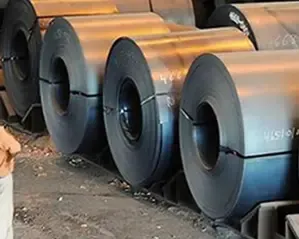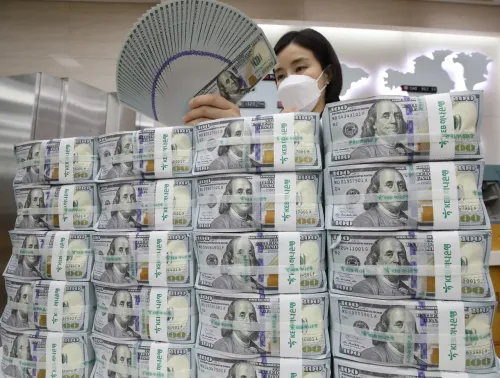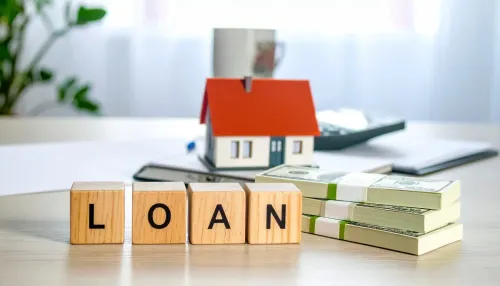South Korea to Formulate Strategies Against US Steel Tariffs This Month

Synopsis
Key Takeaways
- South Korea to respond to US steel tariffs.
- Industry Minister Ahn Duk-geun emphasizes protective measures.
- Monitoring import goods to prevent unfair practices.
- Household debts may rise due to property market changes.
- Bank of Korea advises on financial stability measures.
Seoul, March 13 (NationPress) South Korea is set to create a response plan by the end of this month to address the United States' 25 percent tariff on all steel imports, aiming to safeguard the Korean steel industry, as stated by the industry minister on Thursday.
Industry Minister Ahn Duk-geun disclosed this timeline during a meeting with key steel producers, including POSCO Group and Hyundai Steel Co., emphasizing that the government will respond decisively to any unfair trade practices.
"The government is striving to enhance trade protection measures, which includes intensifying monitoring on imported goods and addressing circumvention dumping related to unfairly imported products," he mentioned, as reported by Yonhap news agency.
The administration under Donald Trump initiated a 25 percent duty on all steel imports, affecting shipments from South Korea starting Wednesday.
Additionally, tariffs were imposed on 87 steel and aluminum derivative products, and duty-free quotas for steel imports from South Korea and various nations were removed.
In 2018, the initial Trump administration had exempted South Korean steel products from tariffs, provided a yearly import limit of 2.63 million tons, which represented about 70 percent of Korea's average export volume from 2015 to 2017.
During the meeting, Ahn urged steel companies to anticipate increased uncertainties as a persistent factor and to proactively assess their investment and export strategies, particularly focusing on high-value products.
In the meantime, recent deregulation in the property sector and relaxed lending policies from banks could lead to a rise in household debt, necessitating additional measures for financial stability, according to the central bank on Thursday.
The Bank of Korea (BOK) suggested this in its recent biannual monetary policy report, as government statistics indicated that household loans disbursed by banks increased for the first time in three months in February.
"There are still high uncertainties regarding the trajectory of household debts given the current housing market conditions and other influencing factors," the report stated.










